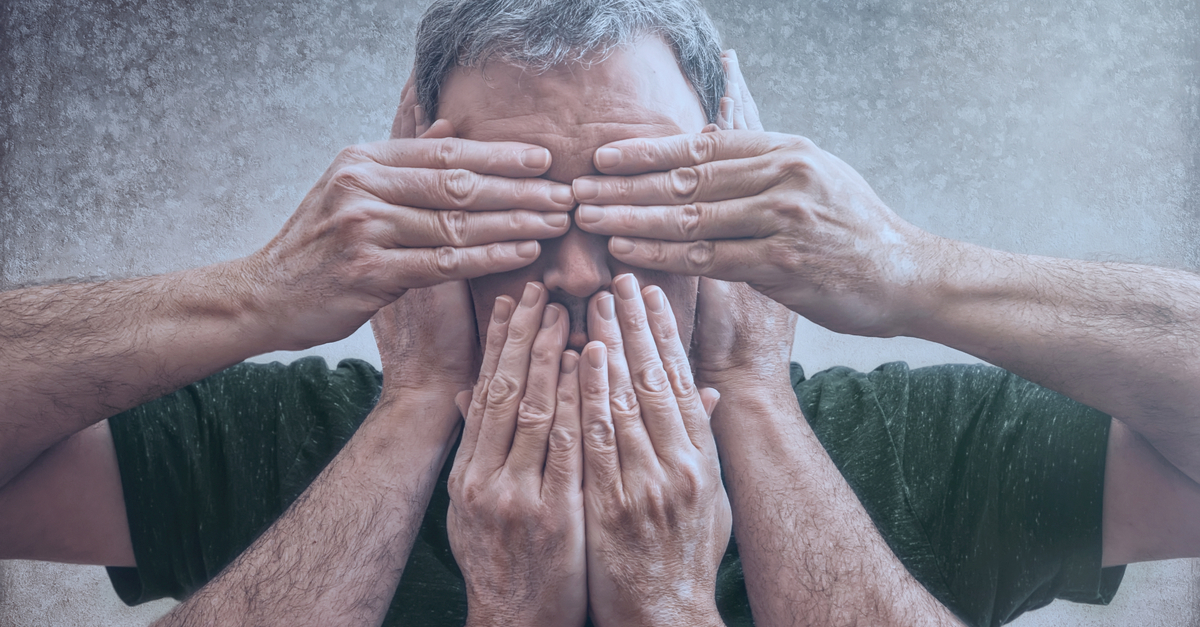 David Fawcett PhD, LCSW
David Fawcett PhD, LCSW
What Is Denial?
Persons in active addiction, both substance and behavioral, are unlikely to view their substance use and compulsive behaviors as causes of the problems in their lives. Even when their lives are coming apart at the seams and they are neck-deep in obviously addiction-related consequences, they can convince themselves (and they will work to convince others) that their disastrous lives are not their fault and are unrelated to their addictive behavior. In fact, they typically view their addiction as the solution to rather than the cause of their many life issues. They say things like, “Without alcohol and porn, I don’t know what I’d do to make it through the day.” And they will say this on the heels of their third DUI and getting fired from work for viewing porn on the job.
Addicts of all types are painfully out of touch with the costs of their addictive behavior. They ignore obvious warning signs and consequences and get angry when others point those things out. They either can’t or won’t look at the reality of their lives. Everyone else can easily see that their lives are spinning out of control, and they will still find ways to make what they’re doing OK (in their own minds). They think (and sometimes say, “Sure, if someone else was behaving this way, that person would have a serious problem, but it’s OK for me because…” And then they fill in the blank with all sorts of outrageous lies.
Usually, it is only when a major crisis hits (arrest, divorce or threat of divorce, health crisis, etc.) that addicts will finally admit they’re struggling. And even then, they might choose to defend their addiction instead of trying to save their lives. Non-addicts use consequences (and even potential consequences) as impetus for change. They learn from their mistakes and do whatever they need to do to not make the same mistakes again. Addicts do not. Addicts continue to engage in the same problematic behaviors over and over, apparently hoping that this time things will turn out differently. They do this because, for them, addiction is the #1 priority. It is their best friend and go-to (maybe only) coping mechanism, and they will protect it all costs – no matter how crazy that looks to everyone else.
Is Denial Hardwired?
When battling addiction, denial is hugely counterproductive. In other situations, however, it is highly useful, perhaps even lifesaving. Consider our long-ago ancestors, hunter-gatherers living in caves and rudimentary huts. If one of those individuals was out foraging or hunting for food and a wild animal attacked, denial was both immediate and imperative. If our ancestor felt the full pain from being bitten by a wolf, for instance, he or she would be unable to either fight back or flee and find safety. So we developed the ability to temporarily deny physical pain. (Basically, our brains pump us full of naturally occurring opiates, numbing the pain enough to give us a fighting chance at survival.)
If you’ve ever broken a bone or had some other significant injury, you know what I’m talking about. When the injury first occurs, you don’t feel much pain. You feel surprise and disbelief, but not pain. An hour or so later, however, after you’ve been to the ER and seen the doctor, the pain hits. Hard! This is the same principle as the wolf example above. Our brains temporarily numb (deny) what has happened so we can hold it together until we get help.
Interestingly, denial works with emotional pain as well as physical pain. A friend recently learned that his father had been diagnosed with a very serious cancer. When I asked my friend how he was doing, he said, “Honestly, I’m just numb. I’m not feeling much of anything right now. It’s just really hard to wrap my head around this.” And his response was perfectly normal. Any time we are faced with a sudden emotional trauma, we tend to feel as if it’s not really happening. Instead of being slammed with grief and becoming nonfunctional, our brains allow the pain to seep in gradually so it doesn’t overwhelm us.
Forms of Denial
As explained above, denial can and often does serve a useful purpose. That is why our brains evolved in ways that, in certain circumstances, automatically kick in the denial circuits. That said, denial can be twisted and used in unhealthy ways – particularly if compulsivity and addiction are in play. In such cases, denial is used to ignore the consequences of addiction so the addiction can continue. And, sadly, this willful ignorance can continue for years or even decades. In fact, many addicts, when they finally enter treatment and are asked to examine their life history and addiction’s role in that history, are shocked to ‘discover’ the extent and depth of their problems.
With addictions of all types, denial tends to manifest in one or more of the following forms.
- Blame (Externalization): If my partner wasn’t such a nag, I wouldn’t feel the need to drink and hook up with strangers.
- Entitlement: I work endless hours to support my family, so I deserve to have a little bit of chemical and sexual release.
- Minimization: I only party hard on weekends. And everyone shows up to work on Monday with a hangover, right? It’s just not a big deal.
- Rationalization: I only drink and use after 5 p.m., never at work, and never around my kids. The drugs might be bad for me, but I’m not hurting anyone else.
- Justification: This is what single people do. We hit the bars, drink and do drugs, and have sex. It’s perfectly normal. It would be weird if I didn’t do this stuff.
- Victim Mentality: There is endless pressure on me and work, at home, and everywhere else in my life, and the only relief I get is when I smoke pot and look at porn. Without that, I’d be miserable.
As you can see from the above examples, denial is a series of (often obvious) lies. Over time, these lies build upon each other to form an intricate web of deceit. Most importantly, this deceit starts on the inside. Addicts must lie to themselves first, and convince themselves that their lies are true, before they start lying to others.
Denial is, first and foremost, an internal construct. Once addicts believe the lies that make up their denial, they can defend those lies to others with utmost sincerity, no matter how ridiculous those lies actually are. Because they buy their own dishonesty, their behaviors, no matter how crazy, seem utterly reasonable to them. And they expect others to believe those lies as well.
Thanks to denial, addicts, over time, grow less and less able (and less and less willing) to see the reality of their addiction and the problems it’s creating. They grow increasingly immune to the complaints, criticisms, and fears of the people around them – even those they profess to love – and they correspondingly devalue and dismiss (and/or blame) anyone who tries to point out the problem. Instead of accepting that they may have a serious issue, they ignore attempted interventions and accuse others of nagging, being prudish and restrictive, not understanding them, or asking too much of them. They do this not because they truly don’t care, but because they “need” to protect their addiction.
* * * * * * * * * *
If you or a loved one are struggling with sexual addiction, Seeking Integrity can help. In addition to residential rehab, we offer low-cost online workgroups for male sex addicts new to recovery. The next session starts in early April. Click here for more information.
